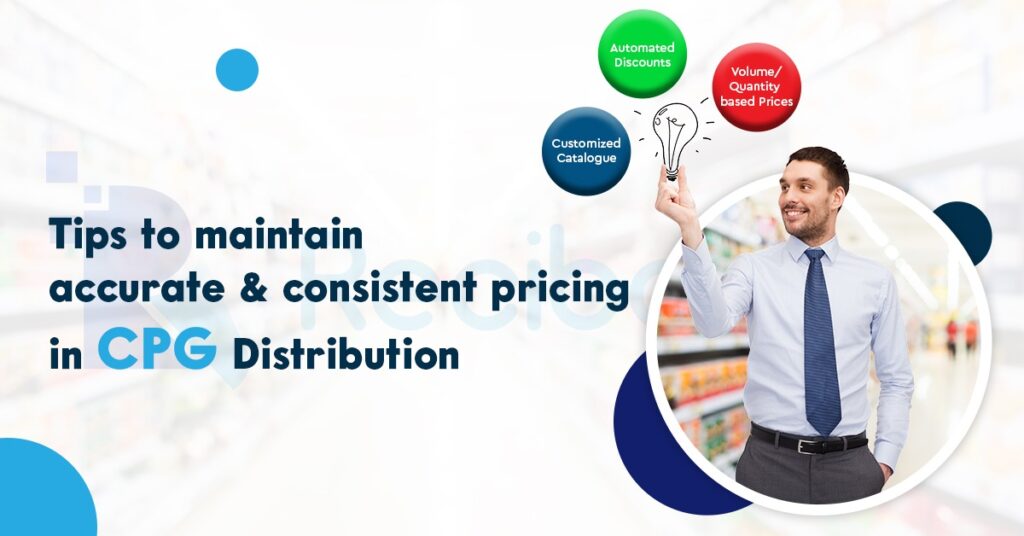Dealing with disorganized pricing data impacts your profits and loss. To understand pricing better, ask yourself these questions:
- How many times have you said “No” to various SFA / DMS vendors that were not able to accommodate your complex pricing structure, promotions and surcharges which are calculated in the backend of your ERP?
- How many times have you wondered if a shortlisted SFA / DMS platform is capable of supporting these custom prices/charges?
- How can you make sure that the prices provided to customers in offline settings correspond to the prices displayed on an ecommerce platform, and that each customer receives the correct pricing information based on their individual contracts?
For any wholesale distributor in CPG business, pricing is crucial. Pricing for customer groups and purchasing groups can be a very difficult task as they are determined by a range of elements, including order frequency, urgency, product categories, payment and delivery conditions, warranty, and purchase quantity. And they become even more difficult to set as the number of SKUs grows.
Competition may force you to adjust prices at any moment to remain competitive, but without a solution that syncs the price changes happening across your many channels, you could easily miss one or more prices while updating them all individually. Maintaining consistent and accurate pricing across channels can be difficult and costly. If it’s not exactly the same on every channel customer may notice discrepancies between them and choose your competitors instead.
Managing Complex Pricing & Promotions
The key to managing pricing complexity across all channels and maximizing your profit margins is having a DMS solution that can handle all of your needs so you can focus on what matters the most for both your company and clients. Here are some tips on how to do just that:
- Group your customers according to their price point or tier so they can be charged differently depending on which group they fall under.
- Include the same product at several different price points and create customized versions of each catalog depending on what kind of client wants it.
- Automate discounts by setting them up at various levels such as individual items, accounts, brands, etc. If possible, use business rules set up specifically for your company.
- Set prices based on volume or quantity.
Flexible pricing options allow for innovation and experimentation, especially in DMS platforms. Experimenting with prices can change up your bottom line, so it is important to keep an eye on what has the biggest impact or ROI for your business.
Gaining relevant insights and dealing with unstructured pricing data across multiple channels may seem daunting at first, but it will help reclaim lost opportunities by preventing retailers from switching suppliers and enhancing overall business growth.

